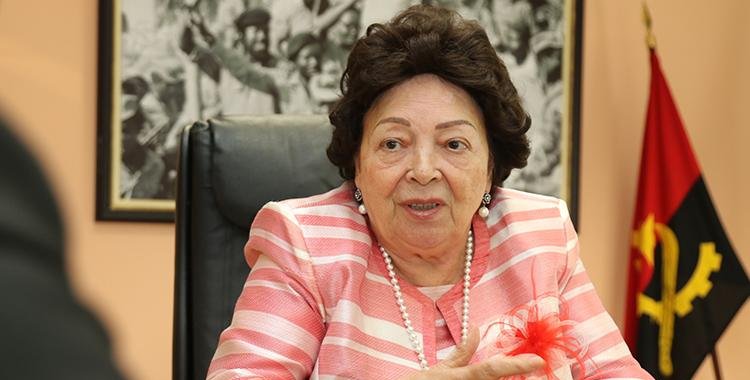In the presidential decree of 28 June, in which he awarded the decorations, to "express recognition and a deep sense of gratitude", the head of state of Cape Verde, José Maria Neves, recalls that national independence, proclaimed on 5 July 1975, "is always a reason and opportunity for a necessary retrospective of the historical, political and cultural path of the nation", enabling "the appreciation of achievements, understanding of the present and projection of the future".
According to the decree, "Cape Verde was never alone" in the national struggle "for dignity and self-determination", which "was always understood as part of the common struggle of African brothers with a view to the liberation of all of Africa, the establishment of sovereign nations and to the creation of real conditions of development and well-being for all".
As part of the commemorations of the 48th anniversary of Cape Verde's independence, the President awarded the Tanzanian diplomat Salim Ahmed Salim, former prime minister of that country and secretary general of the Organization of the African Union (OAU) from 1989 to 2001, the Order Amílcar Cabral, first degree.
"A shrewd, hard-working diplomat who, precisely for that reason, went beyond the limits of action within his country, Tanzania, to be a credible voice on a continent-wide scale and within global bodies such as the United Nations. Legitimately, he belongs to the plethora of personalities who are automatically and naturally associated with the struggle for Pan-Africanism and African Unity. In this sense, in fact, it contributed at various times and in different spaces", is justified in the same decree.
It adds that Salim Ahmed Salim "knew how to project and defend with intelligence and great professionalism the fundamental political ideals and interests of his country and of Africa", he supported the national liberation movements, "particularly those of the former Portuguese colonies, and the combatants South Africans to the apartheid regime".
"His role as a defender of Cape Verde and an enthusiastic supporter of Amílcar Cabral's political and diplomatic initiatives with UN institutions should also be highlighted, including the proposal to send, in April 1972, an observation mission to the liberated regions of Guinea-Bissau. Finally, to culminate his unfailing commitment to the liberation of our country, he went, on purpose, to the city of Praia to witness the founding of the Republic of Cape Verde, on July 5, 1975", he recalls yet.
In the same context, Maria Eugénia da Silva Neto, widow of the first President of Angola, Agostinho Neto (1922 – 1979), is distinguished with the Order of Amílcar Cabral, second degree, with José Maria Neves highlighting that the "decisive component of the common struggle for the emancipation of African peoples is certainly that of women, whose contribution, with the same firmness of principles and the same determination as those of men, manifested itself on the most varied fronts".
"Women, mothers, wives, daughters and comrades, first-line patriots who refused to be relegated to domestic, secretarial or administrative work, to act actively for the liberation of Africa. In this regard, we highlight Maria Eugénia da Silva Neto who, in raising awareness and mobilization of women, as well as in his valuable participation in the information and communication department of the Popular Movement for the Liberation of Angola, MPLA, in the activities of the culture department and in the various anti-colonial literary and journalistic interventions, he demonstrated his unfailing commitment to the liberation struggle Angola and the whole continent", he explains.
"In this fidelity to the ideals of the fight led by Dr. António Agostinho Neto, magnanimously and stoically enduring all the consequences and the enormous personal resignations imposed by his intimate and voluntary political choice, the commitment dedicated to the valorization and dissemination of the memory of the fight, especially the legacy of President Neto, a fact of fundamental importance for the knowledge of the History of Angola and the formation of the new generations", adds the decree.







